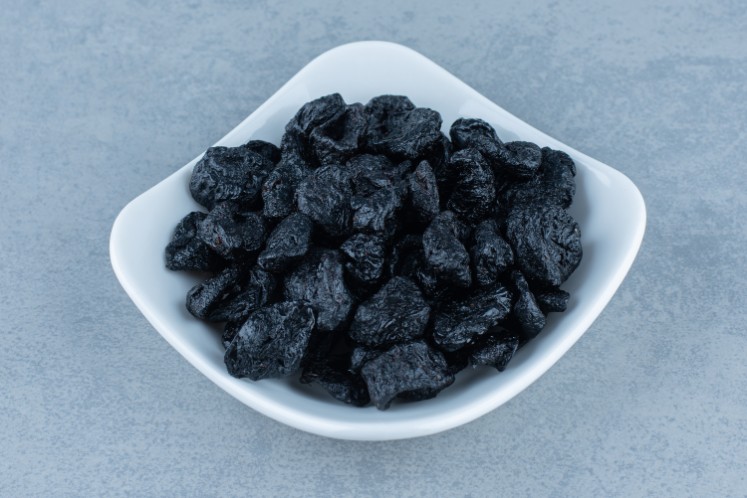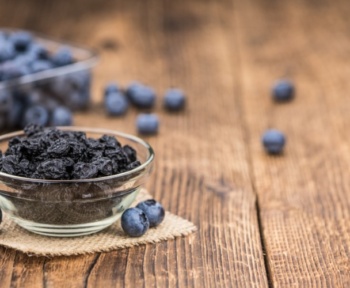Introduction
Blueberries are a favorite fruit, known for their sweet taste and numerous health benefits. But with the rise of freeze-dried fruits, many ask: are freeze-dried blueberries as good as fresh? In this blog, we’ll dive into the key differences between freeze-dried and fresh blueberries, exploring nutritional value, taste, versatility, and cost to help you make an informed decision.
What Are Freeze-Dried Blueberries?
Freeze-drying is when blueberries are frozen and placed under a vacuum. This removes moisture while preserving most of their shape, color, and nutrients. Unlike dehydrating, which uses heat, freeze-drying keeps the blueberries at low temperatures to retain their natural components better.
This process has made freeze-dried blueberries popular, especially in the UK and USA, where people always look for convenient and healthy snacks.

Nutritional Comparison: Freeze-Dried vs. Fresh Blueberries
Nutrition is the most significant factor to consider when comparing freeze-dried and fresh blueberries. Both forms have high levels of vitamins and antioxidants. Still, due to the moisture loss in freeze-dried varieties, there are differences in calorie and sugar content.

The table shows freeze-dried blueberries have more concentrated nutrients, such as fiber and vitamin C, due to water removal. However, the calorie and sugar content is also higher, making portion control essential if you watch your diet.
Texture, Flavor, and Versatility
Another critical difference is texture. Fresh blueberries are juicy and flavorful, while freeze-dried blueberries are crunchy. This difference makes each form more suited to different types of recipes and uses.

For example, fresh blueberries are ideal in smoothies or salads, where their juiciness enhances the overall dish. On the other hand, freeze-dried blueberries are perfect for trail mix or topping for yogurt or cereal, providing a crunchy texture and a burst of flavor.
Longevity and Storage: Which Lasts Longer?
One of the biggest advantages of freeze-dried blueberries is their shelf life. Fresh blueberries spoil quickly and require refrigeration, while freeze-dried blueberries can last for months without losing their nutritional value.

This longer shelf life makes freeze-dried blueberries more convenient for those who want to stock up on healthy snacks or ingredients without worrying about spoilage.
Environmental Impact
From an environmental perspective, both fresh and freeze-dried blueberries have different footprints. Fresh blueberries require constant refrigeration and are prone to food waste due to spoilage. In contrast, freeze-dried blueberries require more energy during production but are less likely to go to waste due to their long shelf life.

While freeze-dried blueberries may take more energy to produce, they reduce food waste and last longer, making them a more sustainable option in certain situations.
Health Benefits: Do Freeze-Dried Blueberries Offer the Same Perks?
Both freeze-dried and fresh blueberries offer excellent health benefits thanks to their high levels of antioxidants, vitamins, and fiber. The antioxidants in blueberries, such as anthocyanins, are known for reducing the risk of heart disease and improving brain function.
Interviews with Nutritionists: According to several nutritionists,
freeze-dried blueberries maintain nearly the same antioxidant levels as fresh ones. However, because freeze-dried blueberries are more concentrated, it’s easier to overeat them, which can lead to higher calorie and sugar intake.
Tip: If you’re watching your sugar intake, be mindful of portion sizes when eating freeze-dried blueberries, as they contain more concentrated sugars than fresh.
Cost Comparison: Freeze-Dried vs. Fresh Blueberries
Cost is often a significant factor when deciding between fresh and freeze-dried blueberries. Fresh blueberries are more expensive in the UK and USA during the off-season. In contrast, freeze-dried blueberries often have a more stable price year-round.
Although freeze-dried blueberries are more expensive per gram, their long shelf life can make them more cost-effective, especially if you frequently deal with food waste from spoiling fresh berries.
When Should You Choose Freeze-Dried Over Fresh?
There are several instances where freeze-dried blueberries may be the better choice:
- Long-Term Storage: If you want blueberries on hand without worrying about them spoiling.
- Portable Snacks: Freeze-dried blueberries are lightweight and perfect for hiking, travel, or packing in lunches.
- In Baking: Freeze-dried blueberries hold better shape in baked goods than fresh ones, which can become mushy.
However, fresh blueberries are the superior option for recipes where texture and juiciness are key, such as smoothies or fruit salads.
Taste Test: Freeze-Dried vs. Fresh
If you’re curious about the taste difference, why not try a test at home? Freeze-dried blueberries offer a more intense sweetness due to the lack of water, while fresh blueberries have a balanced flavor with a mix of sweet and tart notes.
Best Practices:
- Taste both varieties raw.
- Incorporate each into the same recipe (e.g., oatmeal or muffins) to compare how they affect the dish.
Common Myths About Freeze-Dried Blueberries
Myth #1: Freeze-dried blueberries lose all their nutrients.
- Fact: While some vitamins are slightly lost during freeze-drying, most nutrients are preserved.
Myth #2: Freeze-dried blueberries contain no sugar.
- Fact: Freeze-dried blueberries have more concentrated sugars due to water loss, so that they may contain more sugar per gram than fresh blueberries.
Conclusion: Are Freeze-Dried Blueberries as Good as Fresh?
Whether freeze-dried blueberries are as good as fresh depends on your desire. Nutritionally, they are very similar, but freeze-dried blueberries offer convenience, a longer shelf life, and portability. On the other hand, fresh blueberries win in texture and versatility, especially in dishes that rely on their juiciness.
Both forms of blueberries have their advantages, and incorporating a mix of freeze-dried and fresh into your diet can help you enjoy the best of both worlds.
FAQs
Free-dried blueberries retain most nutrients but have more concentrated sugar and calories.
If stored properly in an airtight container, freeze-dried blueberries can last up to 1-2 years.
Yes, freeze-dried blueberries work well in baking and maintain their shape better than fresh berries.
Yes, they are low in carbs and high in fiber, making them a good option for keto diets when consumed in moderation.









